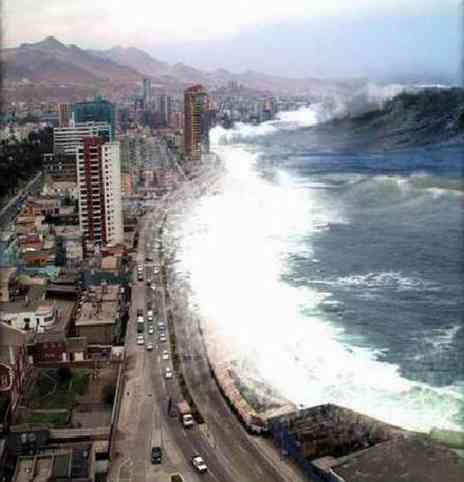ElBaradei fears "chain reaction" to Iran conflict
By Mark HeinrichVIENNA (Reuters) - The U.N. nuclear watchdog director urged Iran and the West to avoid "an uncontrolled chain reaction" towards conflict as he prepared for short-notice talks on Friday with Iran's national security chief.
Ali Larijani will meet International Atomic Energy Agency chief Mohamed ElBaradei en route to Germany, where he will see senior EU officials, the first such contact since Iran was hit with U.N. sanctions in December over disputed nuclear activity.
 |
Mohamed ElBaradei, Director-General of the International Atomic Energy Agency is seen in Davos in this January 25, 2007 file photo. ElBaradei urged Iran and the West to avoid "an uncontrolled chain reaction" towards conflict as he prepared for short-notice talks on Friday with Iran's national security chief. (REUTERS/Pascal Lauener) |
ElBaradei has appealed to both sides to take a simultaneous "time out", with Tehran suspending enrichment of uranium for nuclear fuel and major powers their steps to carry out sanctions, to allay fears of a slide into a U.S.-Iran war.
Tehran says it is enriching uranium only for power plant fuel. Western leaders suspect a disguised atom bomb project.
"There is an urgent need for creative diplomacy and leadership. A durable peaceful solution will not come through pressure only," ElBaradei said in an interview with Germany's Der Spiegel magazine released on Friday.
"If we only focus on sanctions ... that confrontation (risks) ending in an uncontrolled chain reaction ... In the Middle East today, where it's like a ball of fire, you have to be very cautious," ElBaradei said.
"We cannot afford to add oil to that fire. The more we have confrontation, the more the Middle East will become militant and angry ... We should not ride a train wreck."
Washington is building up forces in the Gulf but says it is committed to diplomacy and has no intention of invading Iran.
THREE-MONTH TIMEOUT?
ElBaradei said a "timeout" could run for three months, allowing time for a comprehensive settlement covering not just nuclear issues but security and trade, which have polarised relations between Iran and the United States for 25 years.
He said he hoped dialogue on his proposal would start this weekend at a security conference in Germany.
Larijani has said he will have negotiations there with European Union leaders. EU foreign policy chief Javier Solana and German Foreign Minister Frank-Walter Steinmeier are among those expected to see Larijani, Iran's top nuclear negotiator.
A diplomat from a major EU power said it was possible a formula for a short-term mutual pause in enrichment and sanctions steps might be floated at the talks in Munich.
But the United States and Britain were concerned simultaneous pauses would convey lack of resolve to Iran and diverge from the Security Council resolution demanding Tehran suspend enrichment first to build trust, he said.
"There are differences of opinion about tactics, how to find the right balance between pressure and incentives," ElBaradei said. "(But) there is an urgent need for creative diplomacy and leadership."
EU diplomats said the Munich talks would be exploratory, not the full-fledged negotiations portrayed by Larijani, since Iran had shown no sign of backing away from a drive to move from experimental to industrial-scale uranium enrichment.
It has set up the first 328 of 3,000 centrifuge enrichment machines planned for installation in coming months in its Natanz plant, a vast fortified bunker ringed by anti-aircraft guns.
ElBaradei said he would try to assess how long it would take Iran to install and operate the 3,000 centrifuges in a report to the Security Council on Feb. 21, a U.N. deadline for Iran to stop enriching or risk broader, harsher sanctions.
"So the window of opportunity for a timeout is very narrow."
The IAEA was due on Friday to release recommendations on freezing technical aid projects in Iran in keeping with the sanctions, which ban transfers of technology and expertise to Iran's nuclear and missile programmes.

No comments:
Post a Comment